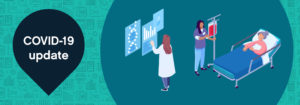One of our favorite things about being back in-person is connecting with clients and colleagues at industry events! At the recent HFMA conference, our own CMO—Andy De—and AVP of Product Management—Lillian Phelps—were able to link up to recap what they were hearing on the conference floor and discuss the future of revenue cycle.
Here are a few key takeaways from the chat:
- The shift to quality over volume has spread: The move to value began in patient care and has now infiltrated other areas of healthcare including revenue cycle management. Organizations are seeing the importance of measuring success on how effective work is rather than how much is done. If an account is touched multiple times but not resolved, the work is not effective and the time spent is likely wasted.
- End-to-end visibility is critical: One area where transformation is happening is the way we break down siloes in the revenue cycle. With powerful data analytics tools, organizations can begin to unearth and understand how the activity taken on the front end in registration actually relates to an appropriate reimbursement on the back end. By tying the back end and the front end together, revenue cycle managers gain comprehensive insights necessary to drive real change.
- The dawn of prescriptive action is here: Over the past several years of analytics innovation, there have been incredible advances in how we display data, identify trends, and make predictions. Now, we are seeing the start of a new capability: prescribing actions. By combining the power of data-based trends, historical information, denial prevention strategies, and more, you can begin to confidently map out your next steps. Precise ROI calculations also allow you to see how much of a difference each step would make, allowing you to make the most cost- and time-effective decisions.
Lillian Phelps, alongside other industry experts, will continue discussing healthcare transformation through the lens of data analytics at the 2022 Impact Summit, our exclusive forum to share insights and solve healthcare data challenges.
Catch more great insights from Lillian in her session on Wednesday, September 21.
Get our take on industry trends
Data visualization: A picture is worth a thousand…healthcare data points?
The amount of data produced daily has grown exponentially with nearly 90% of the world’s data generated in the last two years alone. To ensure we can make sense of this data, analysts must find meaningful ways to present the information to their audiences.
Read on...How did we get here? Hospital analytics and the new normal
I have heard the word “unprecedented” so many times in 2020 that it has lost its significance; many of us have become desensitized to the extraordinary changes in the world this year.
Read on...How to help employer groups plan in a time of uncertainty
Employers and their sponsored health plans are thinking about next year’s benefit designs with a significant challenge not seen before: the effect of the coronavirus pandemic. There are important considerations to take into account before making any decisions about new or existing coverage. Becky Niehus, a director of Product Consulting at MedeAnalytics, explores these new issues and what employers can do to ensure employees are “covered.”
Read on...Healthcare’s return to “normal” after COVID-19: Is it possible?
As providers determine how to get patients to return to facilities for routine disease management and preventive screenings, opportunities are ripe for the application of analytics to triage at the right time to the right setting. Data related to COVID-19 will continue to flow rapidly, but there are possibly more questions than answers now about a return to “normal.”
Read on...


